
Joe “Jellybean” Bryant, the father of the late Basketball Hall of Famer Kobe Bryant, has died at the age of 69, La Salle University’s athletics department reported.
Citing La Salle men’s head basketball coach Fran Dunphy, The Philadelphia Inquirer wrote Joe had recently suffered a stoke. The exact cause of death hasn’t been confirmed yet.
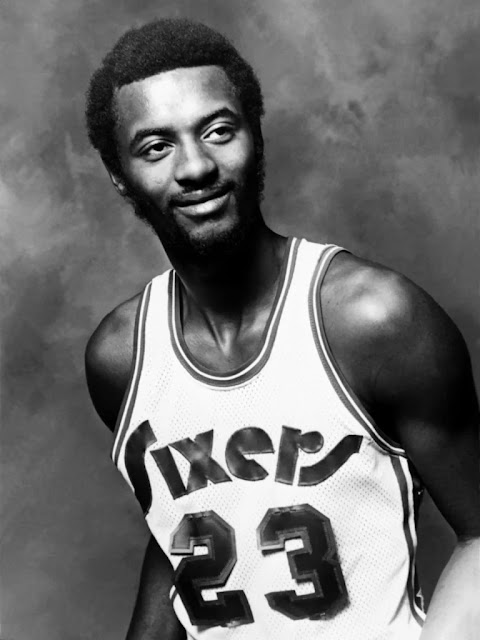
La Salle University, where Joe played and coached, said in a statement that he “was a beloved member of the Explorer family and will be dearly missed.”
Just like his famous son, Joe was a renowned basketball player himself. Drafted by the Golden State Warriors as the 14th overall pick in the 1975 NBA draft, he played for the Philadelphia 76ers for four seasons, the then-San Diego Clippers for three seasons, and the Houston Rockets for one season. He also played in Europe.
The 76ers paid tribute to Joe, calling him “a local basketball icon, whose legacy on the court transcended his journey across Bartram High School, La Salle University, and his first four NBA seasons with the 76ers from 1975-79.”

Joe’s sudden passing comes four years after the tragic death of his son Kobe and his granddaughter Gianna, who were killed in a helicopter crash with seven other people.
Kobe’s widow, Vanessa Bryant, wrote on her Instagram story on Tuesday, “Sending our condolences upon hearing the news of my father-in-law’s passing.
“We hoped things would’ve been different. Although the times we spent together were few, he was always sweet and nice to be around. Kobe loved him very much.”
Former Kobe teammate Doug Young praised Joe as the ideal “role model.”

“Joe was our JV coach at Lower Merion and I could not have asked for a more positive mentor, teacher, and role model,” Young told ESPN. “It’s difficult to overstate how much he influenced me and my teammates. He made basketball fun and made us all want to be better; he believed in us. I’ll never forget his infectious smile, his bear hugs and the incredible bond he shared with Kobe. Growing up in Lower Merion, there was no family we loved and admired more than the Bryants, and that started with Joe.”
Arn Tellem, the vice chairman of the Pistons and formerly Kobe Bryant’s agent, expressed his sadness over the loss of Joe and joined the basketball community in mourning a true Philly hoops legend. “Our friendship opened the door for me to represent Kobe as he entered the NBA, a memory I’ll always cherish. Joe was a devoted husband, father and grandfather, whose warmth touched everyone he met.”
May he rest in peace.
Telhadista descobre um esconderijo secreto na chaminé de uma senhora idosa e pobre

Após décadas de dignidade silenciosa em sua casa vitoriana em ruínas, a idosa Nancy aceita relutantemente a ajuda de um pedreiro local. Mas a descoberta dele na chaminé da casa de sua infância a força a confrontar um legado familiar doloroso que ela manteve escondido desde a trágica queda de seu pai.
Eu nunca quis ser o anjo da guarda do bairro. Esse título veio depois, depois de tudo o que aconteceu com o telhado e o que encontramos dentro dele. É engraçado como a vida funciona — às vezes as maiores mudanças acontecem bem quando você acha que não tem mais nada para dar.
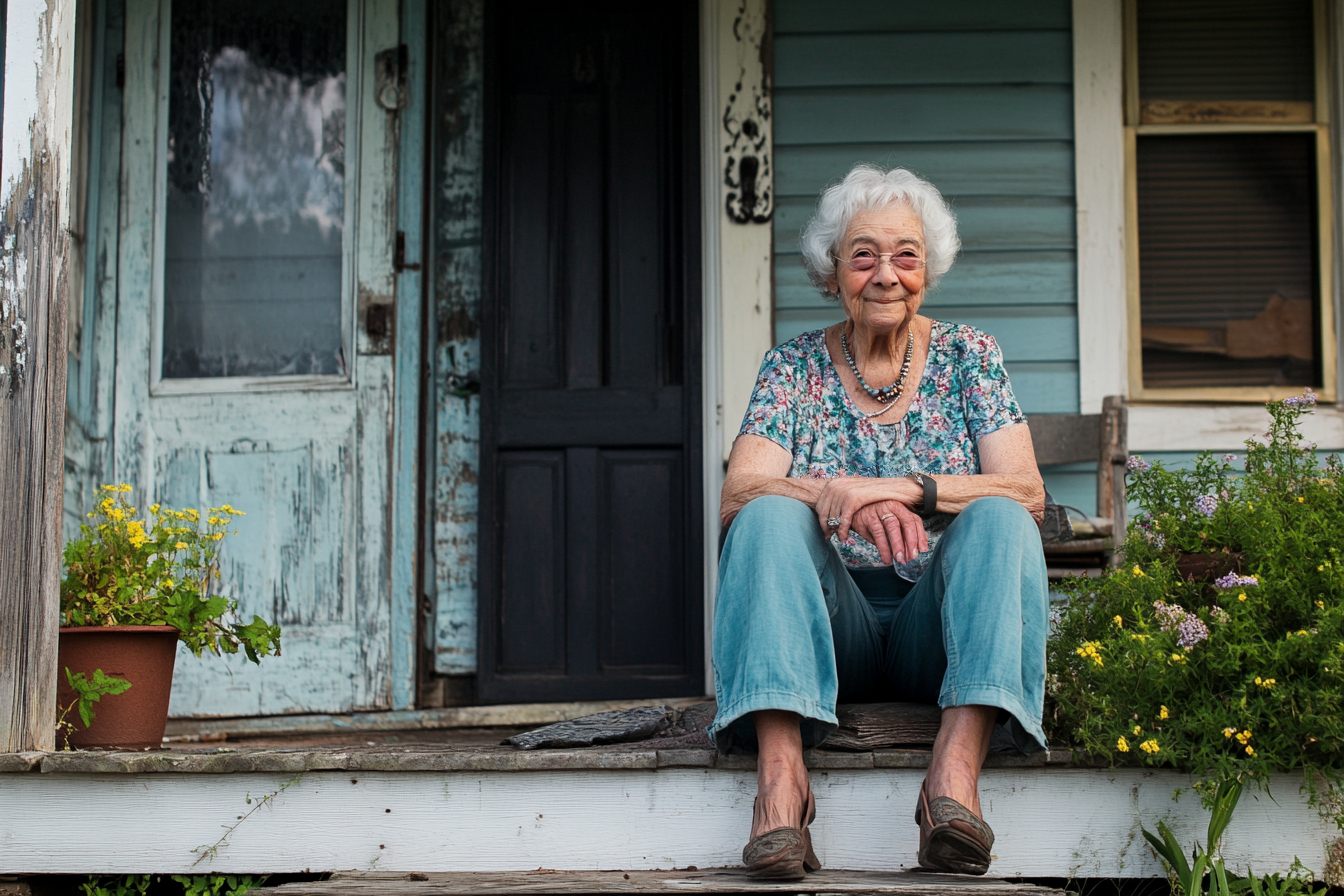
Uma mulher sentada na varanda | Fonte: Midjourney
Minha casa vitoriana na Maple Street era algo especial quando papai estava vivo. Hoje em dia, a tinta descasca como pele queimada pelo sol, e a varanda cede como ombros cansados.
Mas é nosso lar e tem sido assim desde 1952, quando papai nos mudou pela primeira vez, orgulhoso como um pavão em sua melhor roupa de domingo.
“Nancy”, ele dizia, ajeitando sua gravata borboleta no vidro chanfrado da nossa porta da frente, “lembre-se de que a integridade vale mais que ouro”.
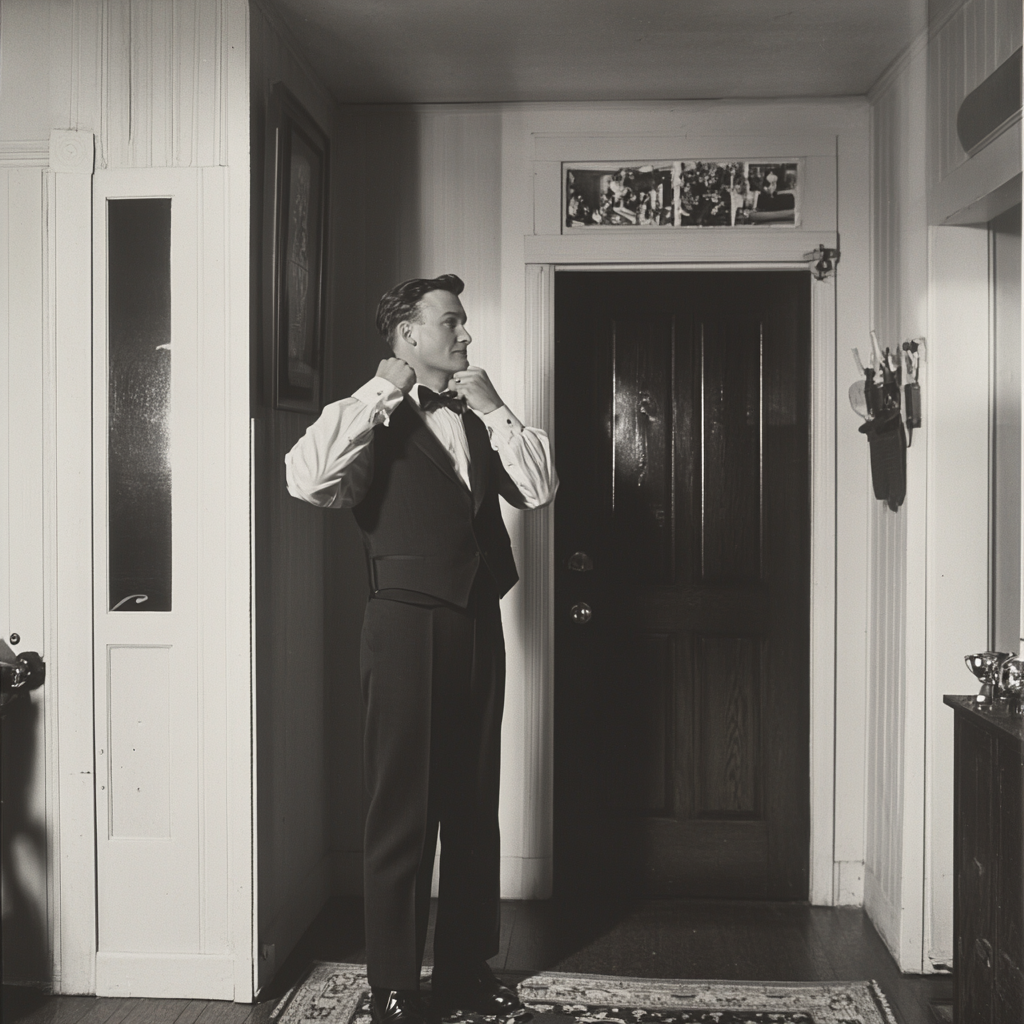
Um homem olhando no espelho | Fonte: Midjourney
Eu assenti, sem entender muito bem o que ele queria dizer. Não naquela época, pelo menos.
A casa já tinha visto dias melhores, assim como eu. Depois do meu divórcio de Thomas (“Não é você, Nancy, é só que… tem outra pessoa”), eu me joguei na manutenção do lugar. Mas o tempo tem um jeito de desgastar tudo, até mesmo a determinação.
A Sra. Chen, da casa ao lado, às vezes me trazia bolinhos, com preocupação estampada em seu rosto. “Você trabalha muito duro, Nancy. Deixe seus filhos ajudarem.”
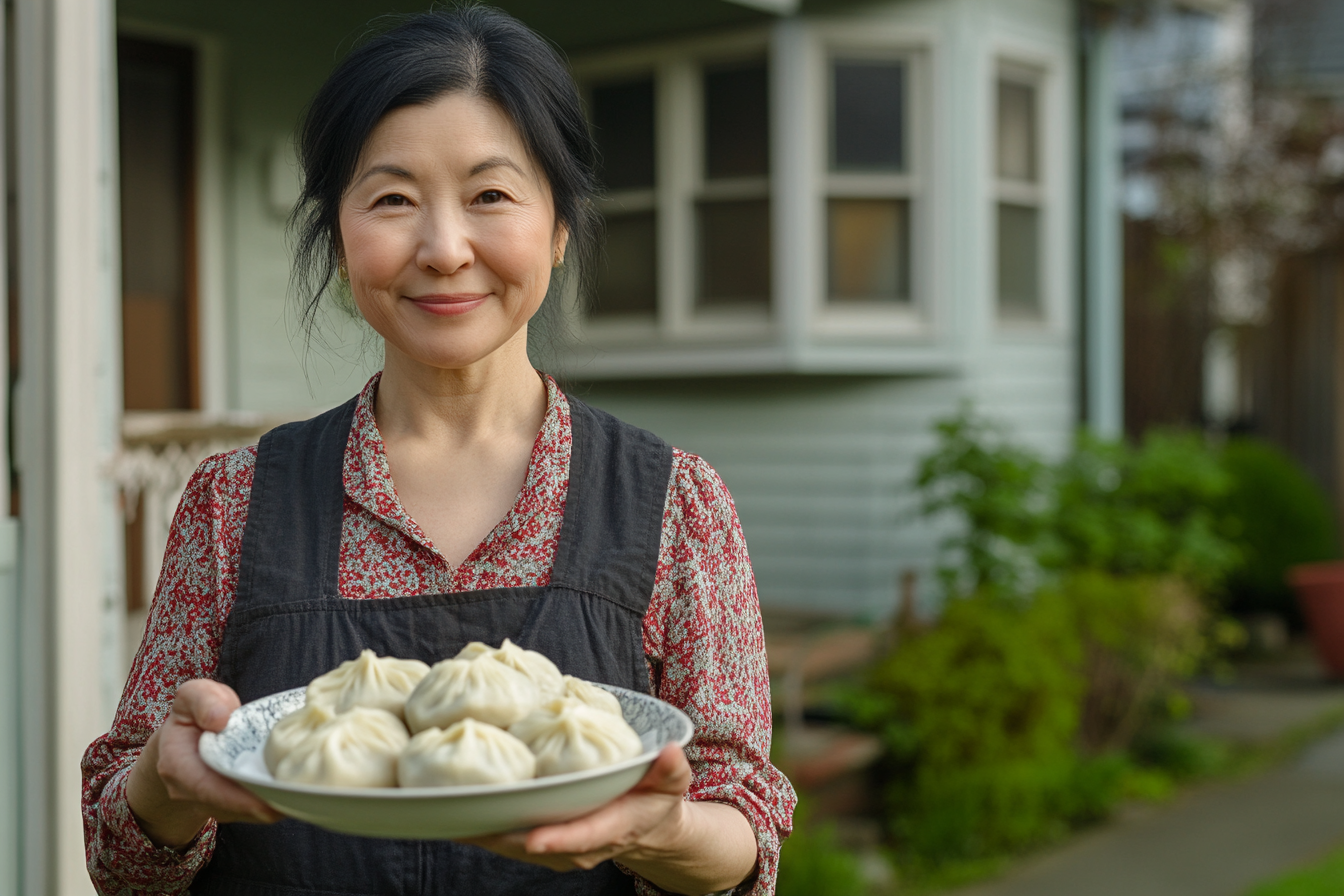
Uma mulher segurando um prato de bolinhos | Fonte: Midjourney
“Sem crianças para ajudar”, eu respondia com um sorriso treinado. “Só eu e a casa agora.”
Isso sempre me rendia uma porção extra de bolinhos e um tapinha preocupado na mão.
As chuvas de inverno chegaram cedo naquele ano, encontrando cada rachadura no meu velho telhado. Fiquei na cozinha, observando a água pingar em uma coleção de tigelas e potes de mistura, cada um batendo como um pequeno martelo no meu orgulho.
“Isso não vai dar certo”, murmurei para mim mesmo.

Uma mulher olhando preocupada para recipientes cheios de água | Fonte: Midjourney
Ultimamente, falo comigo mesmo com mais frequência do que não falo. Viver sozinho faz isso com você, especialmente depois de 72 anos de vida e um casamento fracassado no qual tento não pensar mais.
Robert me viu mexendo com aqueles potes uma manhã. Ele morava três portas abaixo e tinha um negócio de telhados que o mantinha ocupado o suficiente. Eu o observava às vezes, saindo cedo em sua caminhonete branca, com as ferramentas chacoalhando na traseira.
“Srta. Nancy”, ele gritou, cruzando meu gramado. “Não pude deixar de notar que você tem um problema aí em cima.”

Um homem olhando para uma casa velha | Fonte: Midjourney
Endireitei meu cardigan, tentando parecer mais arrumada do que me sentia. “Oh, não é nada sério, Robert. Só algumas gotas aqui e ali.”
Ele olhou para o meu telhado, com as mãos nos quadris. “Esses ‘poucos pingos’ vão se transformar em problemas maiores se não os consertarmos. Deixe-me ajudar.”
“Eu não poderia possivelmente—”
“Sem custos”, ele interrompeu, levantando uma mão calejada.

Um homem sorridente | Fonte: Midjourney
“Considere isso uma vingança por todas as vezes que você cuidou dos meus filhos quando Sarah estava doente.”
Minha garganta apertou. “Sério, Robert? Os biscoitos que eu fiz para eles foram pagamento suficiente?”
“Aqueles biscoitos de chocolate podem ter valido seu peso em ouro”, ele riu, “mas isso é diferente. Nem todo serviço tem um preço. Lembra quando Tommy estava com gripe e você ficou acordado a noite toda com ele?”
Eu me lembrei.
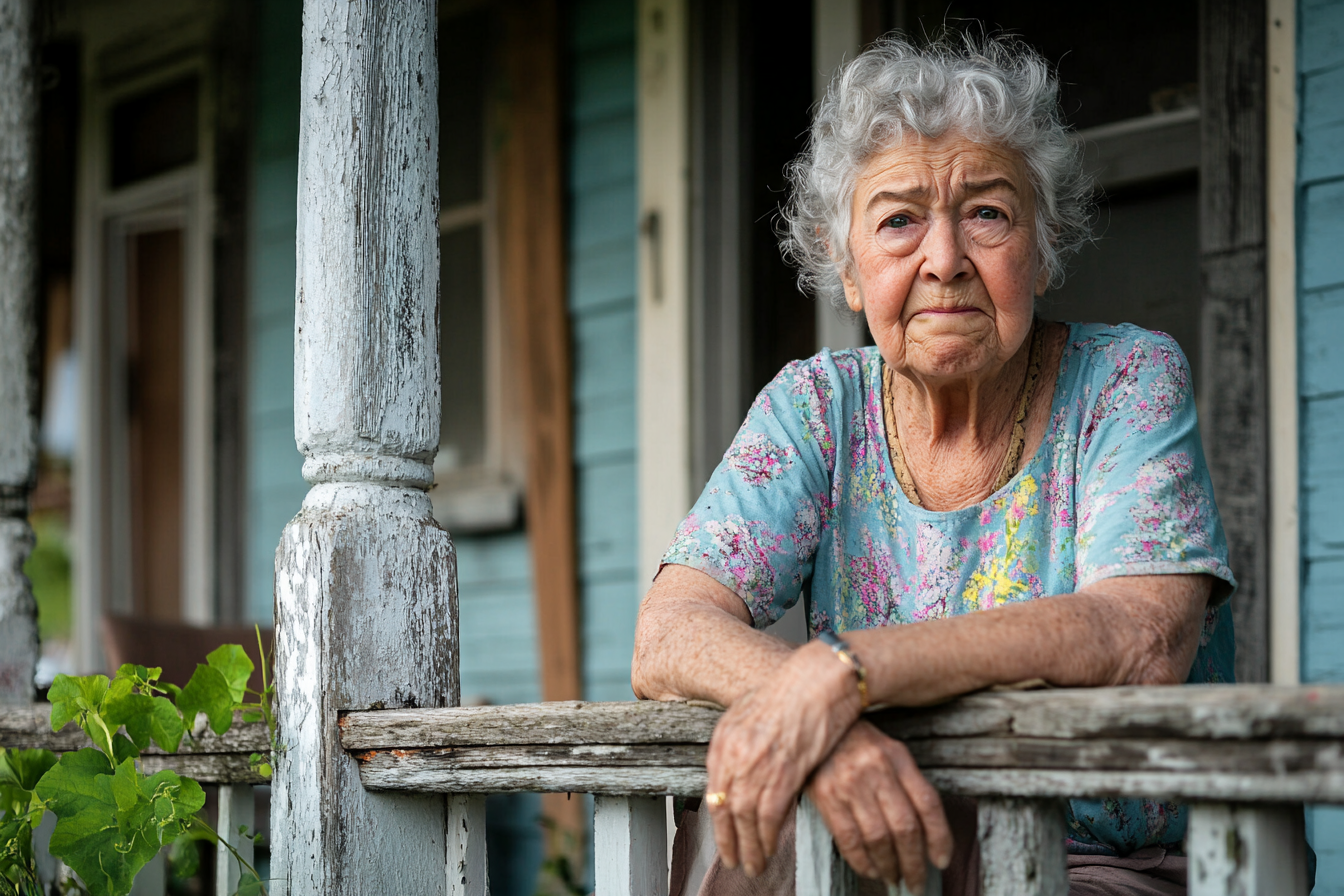
Uma mulher atenciosa | Fonte: Midjourney
Tommy era tão pequeno então, ardendo de febre. Sarah estava no hospital, e Robert parecia prestes a desmaiar de preocupação.
“Sra. Nancy”, ele disse, com a voz gentil, mas firme, “às vezes você precisa deixar as pessoas te ajudarem, do mesmo jeito que você tem ajudado as pessoas aqui há anos.”
Eu queria discutir, mas o barulho de outro gotejamento na minha cozinha fez a decisão por mim. “Bem, se você tem certeza de que não é problema…”
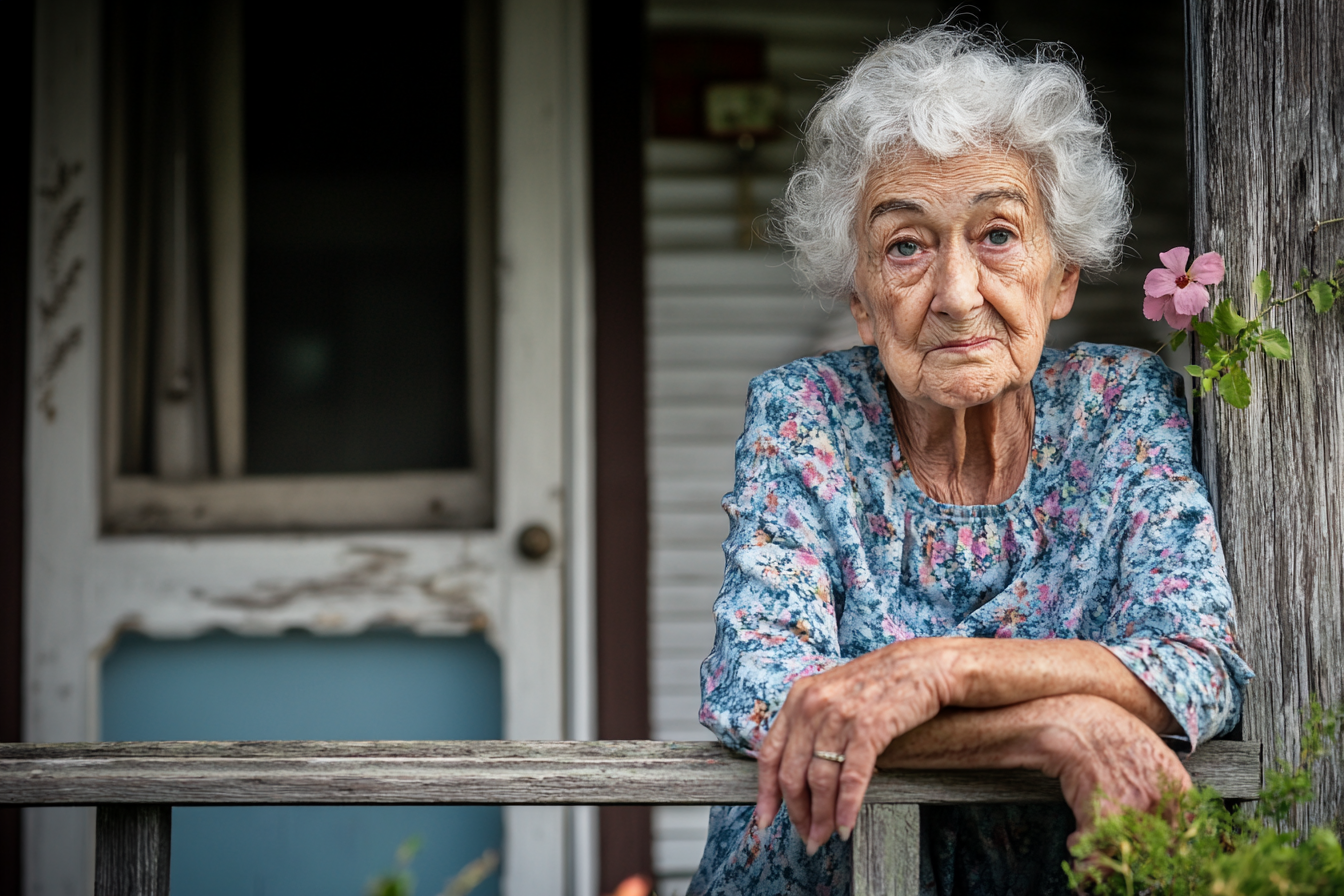
Uma mulher resignada | Fonte: Midjourney
Na manhã seguinte, Robert apareceu com sua escada e ferramentas. As crianças da vizinhança se reuniram para vê-lo trabalhar, e eu as mandei embora com promessas de biscoitos fresquinhos mais tarde.
“Meu pai diz que você é a mulher mais simpática da rua”, declarou a pequena Maria Martinez, com suas tranças balançando enquanto ela pulava.
“Seu pai é muito gentil”, respondi, mas suas palavras aqueceram algo dentro de mim que os anos haviam esfriado.
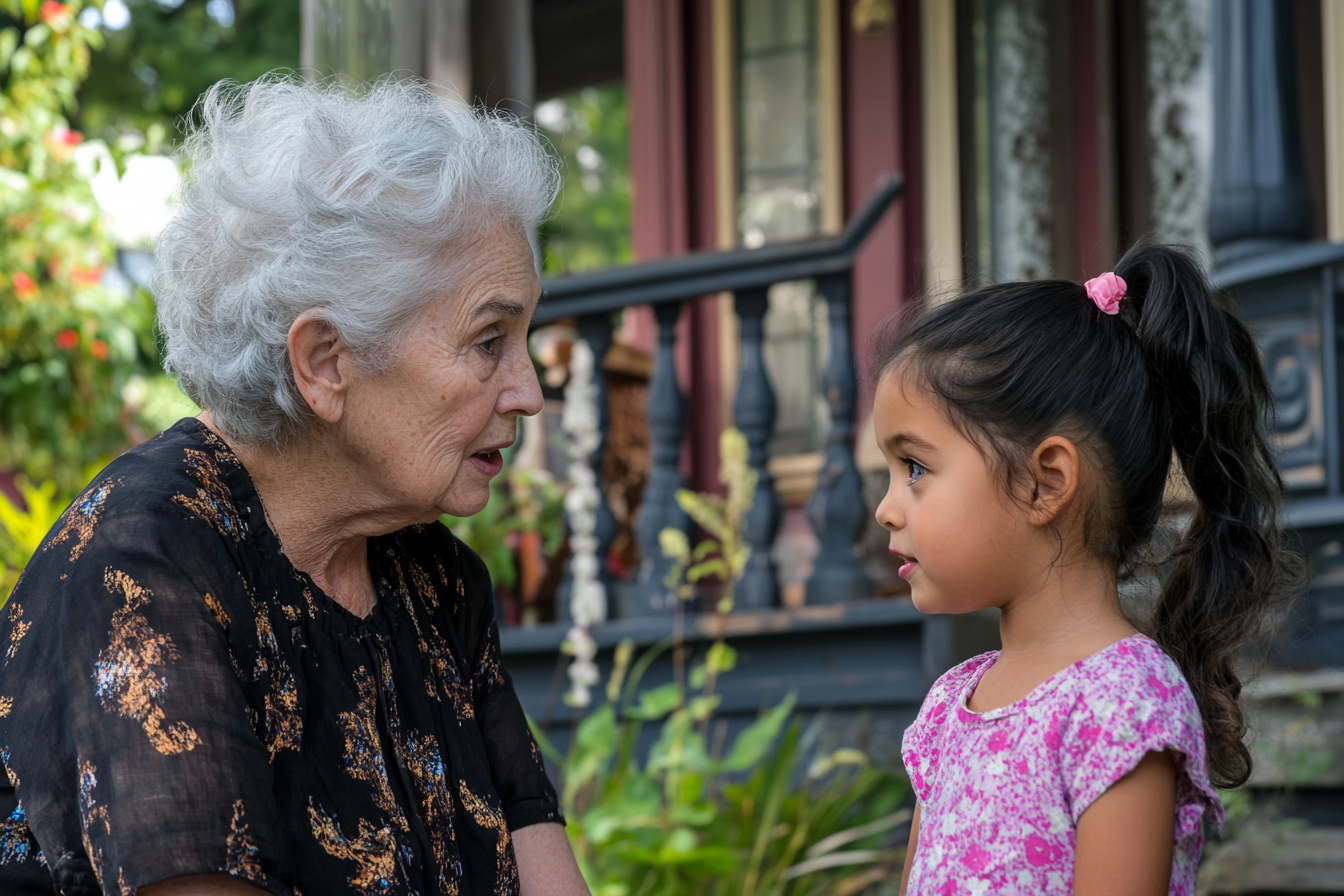
Uma mulher conversando com uma garota | Fonte: Midjourney
Observei de baixo enquanto Robert se movia pelo meu telhado com a firmeza de alguém que já tinha feito isso mil vezes antes. O sol da manhã iluminou suas ferramentas, enviando breves flashes de luz pelo quintal como código morse.
“Está tudo bem aí em cima?”, gritei quando ele ficou quieto por muito tempo.
“Só checando sua chaminé”, ele gritou de volta. “Espere um minuto… tem alguma coisa—”
O som de tijolo raspando contra tijolo me fez estremecer. Então silêncio.
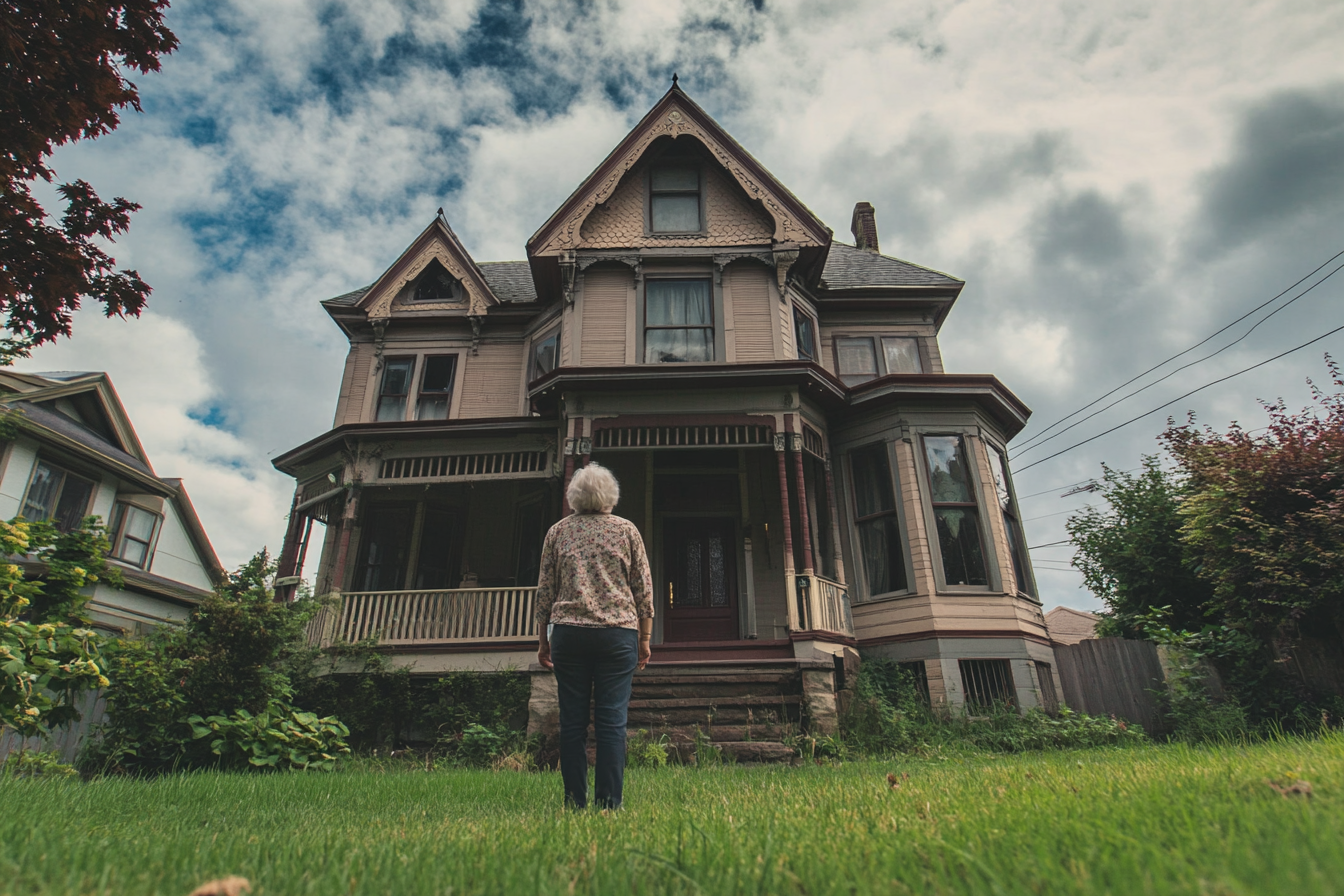
Uma mulher olhando para o telhado de uma casa velha | Fonte: Midjourney
Sons suaves ecoaram do telhado, mas Robert ainda não disse nada. Eu estava começando a ficar preocupado quando sua voz foi ouvida.
“Sra. Nancy?” A voz de Robert mudou, ficou mais tensa de alguma forma. “Acho melhor você ver isso.”
Ele desceu com cuidado, segurando algo contra o peito. Não consegui entender o que era até que ele chegou ao pé da escada e se virou para mim. Em suas mãos estava uma bolsa de couro, escura com a idade e a poeira.

Um homem segurando uma bolsa de couro | Fonte: Midjourney
Meu coração pulou uma batida. Eu não o via há anos, mas o reconheci imediatamente. Eu sabia o que havia dentro dele também, mas deixei que ele me mostrasse, de qualquer forma.
Moedas de ouro brilhavam ao sol, as joias antigas da mamãe brilhavam e os diamantes nos quais o papai havia investido antes de tudo dar errado brilhavam como neve fresca.
As mãos de Robert tremeram levemente. “Isso deve valer uma fortuna.”
Observei seu rosto cuidadosamente e vi a guerra se desenrolando atrás de seus olhos.

Um homem de olhos arregalados | Fonte: Midjourney
Ele tinha três filhos em casa, uma hipoteca para pagar e sonhos que ele havia deixado de lado para manter comida na mesa. Aquela bolsa continha o suficiente para mudar tudo para ele.
“Eu…” ele começou, então engoliu em seco. “Isso pertence a você, Srta. Nancy. É sua casa, sua família…”
Coloquei minha mão sobre a dele. “Você é um bom homem, Robert Miller. Assim como meu pai era.”
Seus olhos encontraram os meus, confusos. “Você sabia disso?”
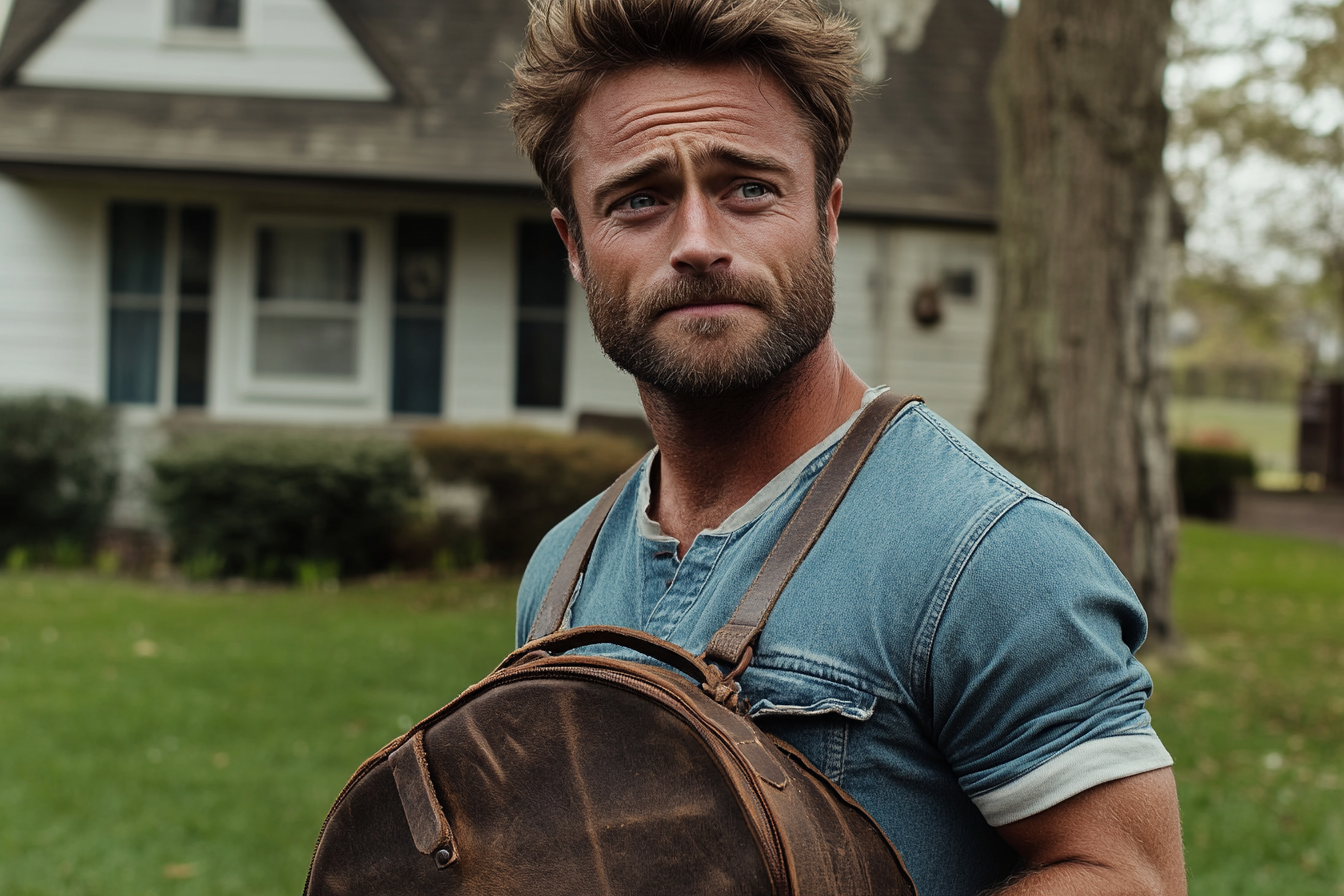
Um homem segurando uma bolsa de couro | Fonte: Midjourney
Eu assenti, levando-o até meu balanço na varanda. “Papai escondeu lá antes de morrer. Ele disse que seus parceiros de negócios estavam ficando gananciosos, e que algo não parecia certo. Ele provou que estava certo um mês depois, quando o forçaram a sair de sua própria empresa.”
“Mas por que você nunca usou isso? Todos esses anos, lutando…”
Sorri, observando os filhos da Sra. Peterson brincando de amarelinha do outro lado da rua. “Porque papai também me ensinou que dinheiro não é o que faz uma vida valer a pena. Escolhi ser rica de outras maneiras.”
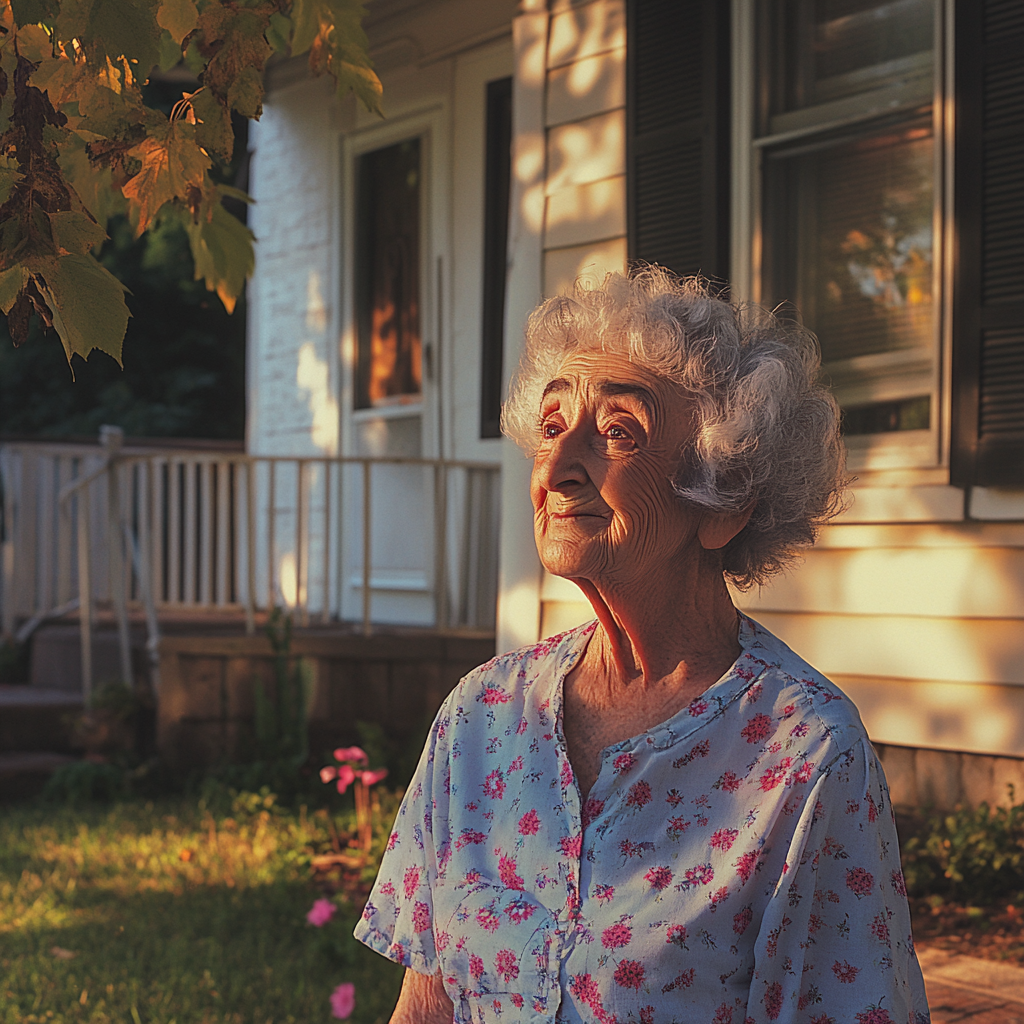
Uma mulher sorridente | Fonte: Midjourney
“Como o quê?”, Robert perguntou suavemente, com a bolsa pesada no colo.
“Como o primeiro sorriso de Tommy depois que sua febre passou. Como a mãe de Maria aprendendo inglês na minha cozinha tomando café, e observando Sarah se recuperar e sabendo que eu ajudei, mesmo que só um pouco.” Dei um tapinha na mão dele. “Como ter vizinhos que percebem quando meu telhado vaza.”
Robert sentou-se em silêncio por um momento. “Acho que consigo entender de onde você está vindo. Mas você não pode simplesmente deixar isso parado na sua chaminé, Srta. Nancy. O que você quer fazer com isso?”
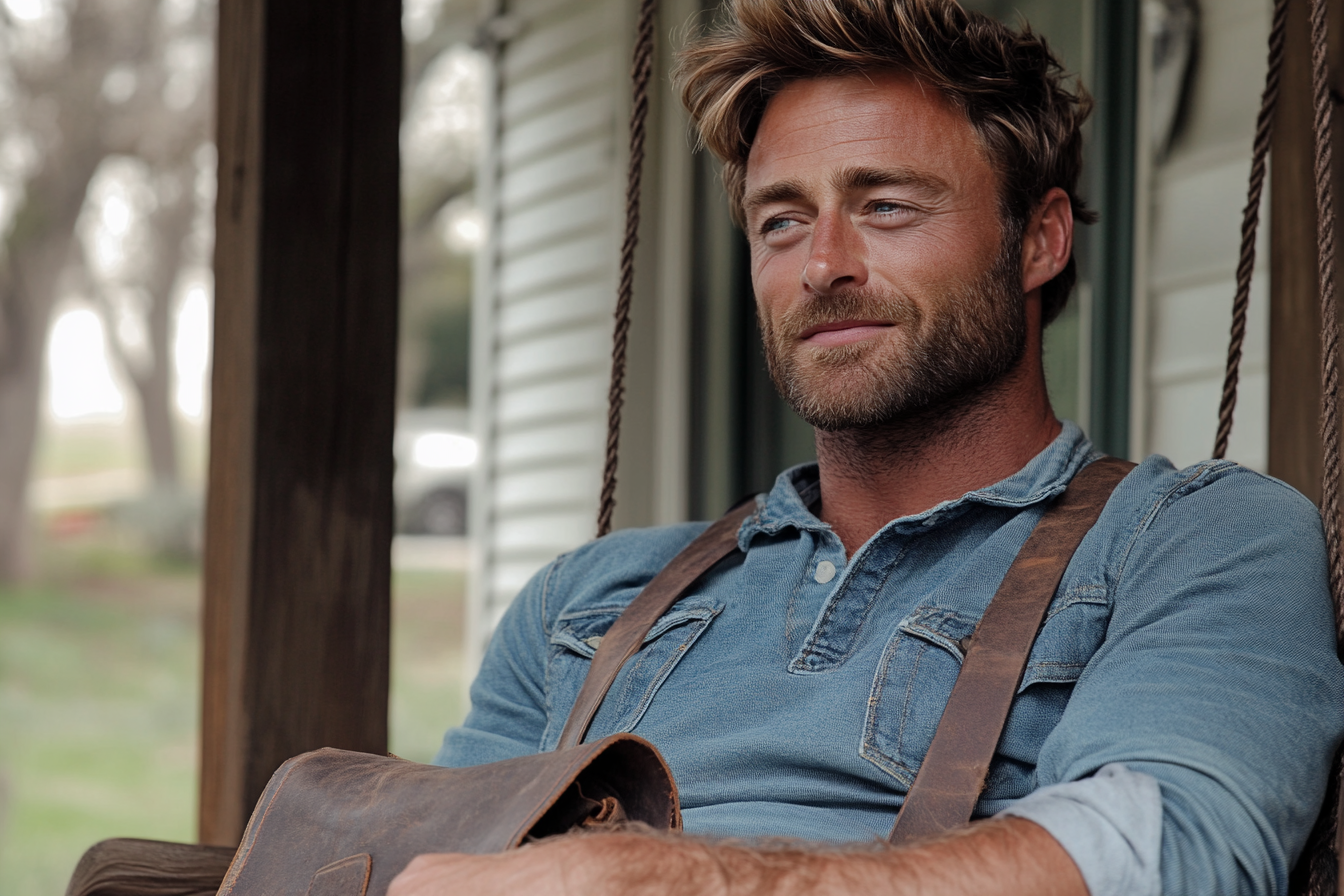
Um homem sentado em um balanço da varanda | Fonte: Midjourney
“Eu acho”, eu disse lentamente, “que é hora de colocar esse dinheiro para render. Do jeito que o papai gostaria.”
Nas semanas seguintes, Robert me ajudou a vender tudo, e eu distribuí entre as famílias do meu bairro. A família Martinez conseguiu o suficiente para mandar o filho mais velho para a faculdade.
“Mas, Srta. Nancy”, protestou a Sra. Martinez, com lágrimas nos olhos, “isso é demais!”
“A educação era tudo para meu pai”, eu disse a ela. “Vamos honrar isso.”
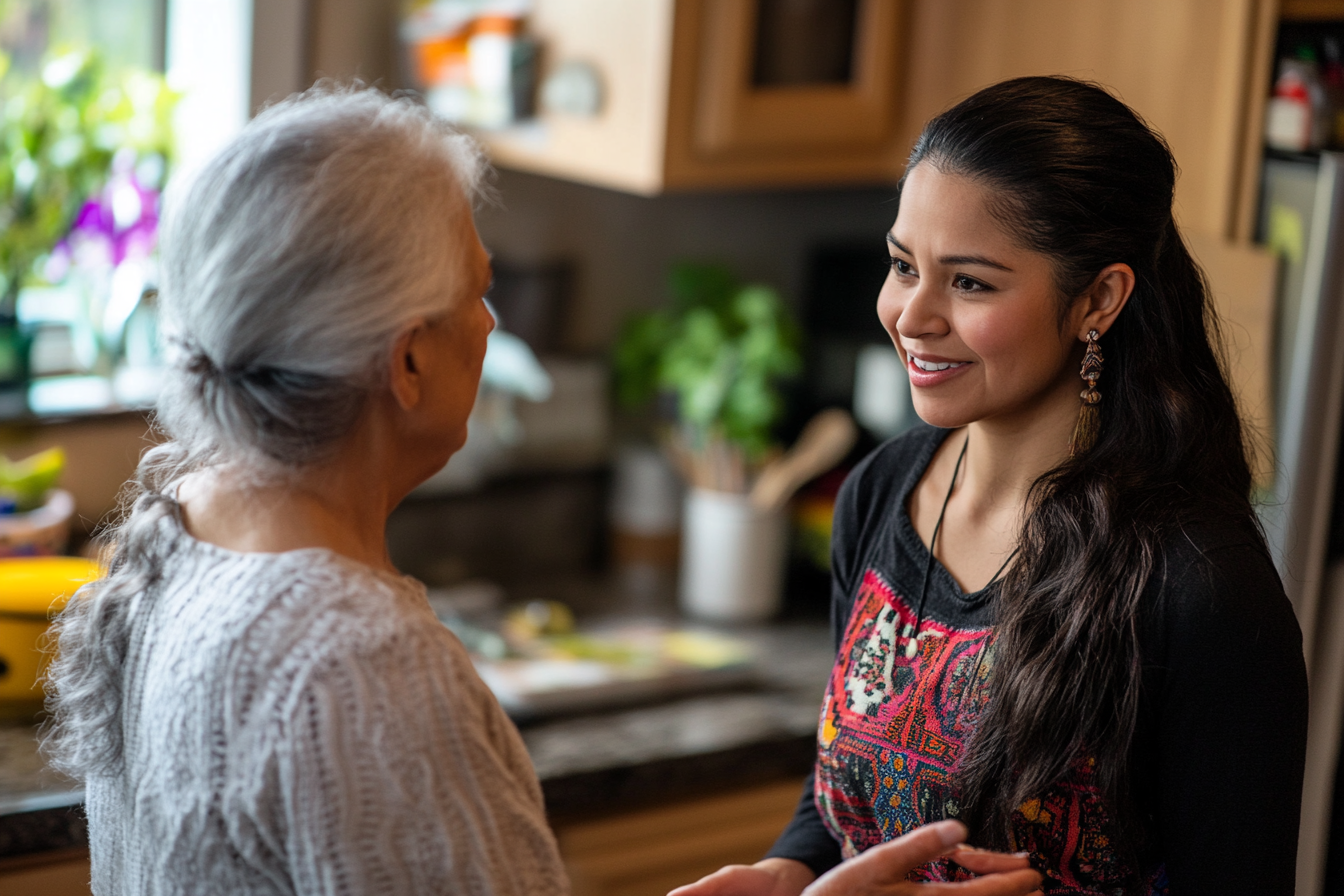
Duas mulheres falando | Fonte: Midjourney
Os Wilsons finalmente consertaram o telhado também. O centro comunitário ganhou novos computadores, e o playground ganhou aquela superfície de segurança de que precisava há anos. Cada presente veio com uma história sobre meu pai, sobre integridade e sobre comunidade.
“Você tem que tomar um pouco”, insisti para Robert quando estava quase acabando. “Pela sua honestidade, se nada mais.”
Ele tentou recusar, mas eu não quis ouvir falar nisso.

Um homem emocional | Fonte: Midjourney
“Sua integridade vale mais que ouro”, eu disse a ele, “mas isso não significa que você não deva ser recompensado por ela”.
O bairro mudou depois disso. Não muito — as casas ainda eram velhas, e as ruas ainda precisavam de reparos. Mas havia algo diferente no ar, algo que parecia esperança.
Uma noite, enquanto eu estava sentado na varanda assistindo ao pôr do sol, a pequena Amy apareceu correndo com um punhado de dentes-de-leão.

Uma menina segurando um buquê de dentes-de-leão | Fonte: Midjourney
“Esses são para você”, ela disse, colocando-os em minhas mãos. “Mamãe disse que você é nosso anjo da guarda.”
Eu ri, colocando uma das flores amarelas atrás da orelha dela. “Não, querida. Eu sou apenas alguém que aprendeu que o verdadeiro tesouro não é o que você guarda — é o que você dá.”
“Gostou dos seus biscoitos?” ela perguntou séria.
“Gosto dos meus cookies”, concordei. “E gosto do amor que é colocado em fazê-los.”

Uma mulher sorridente em pé na frente de sua casa | Fonte: Midjourney
Enquanto eu a observava voltando para casa, pensei no papai e suas lições sobre integridade, em Robert e sua escolha de ser honesto, e em todas as maneiras como a riqueza pode ser medida.
Este trabalho é inspirado em eventos e pessoas reais, mas foi ficcionalizado para fins criativos. Nomes, personagens e detalhes foram alterados para proteger a privacidade e melhorar a narrativa. Qualquer semelhança com pessoas reais, vivas ou mortas, ou eventos reais é mera coincidência e não intencional do autor.
O autor e a editora não fazem nenhuma reivindicação quanto à precisão dos eventos ou à representação dos personagens e não são responsáveis por nenhuma interpretação errônea. Esta história é fornecida “como está”, e quaisquer opiniões expressas são as dos personagens e não refletem as opiniões do autor ou da editora.

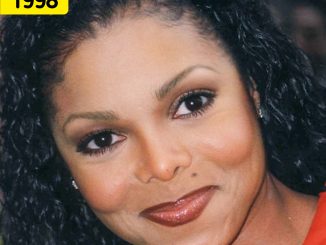
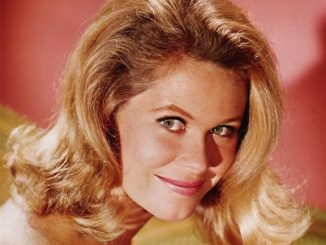
Leave a Reply